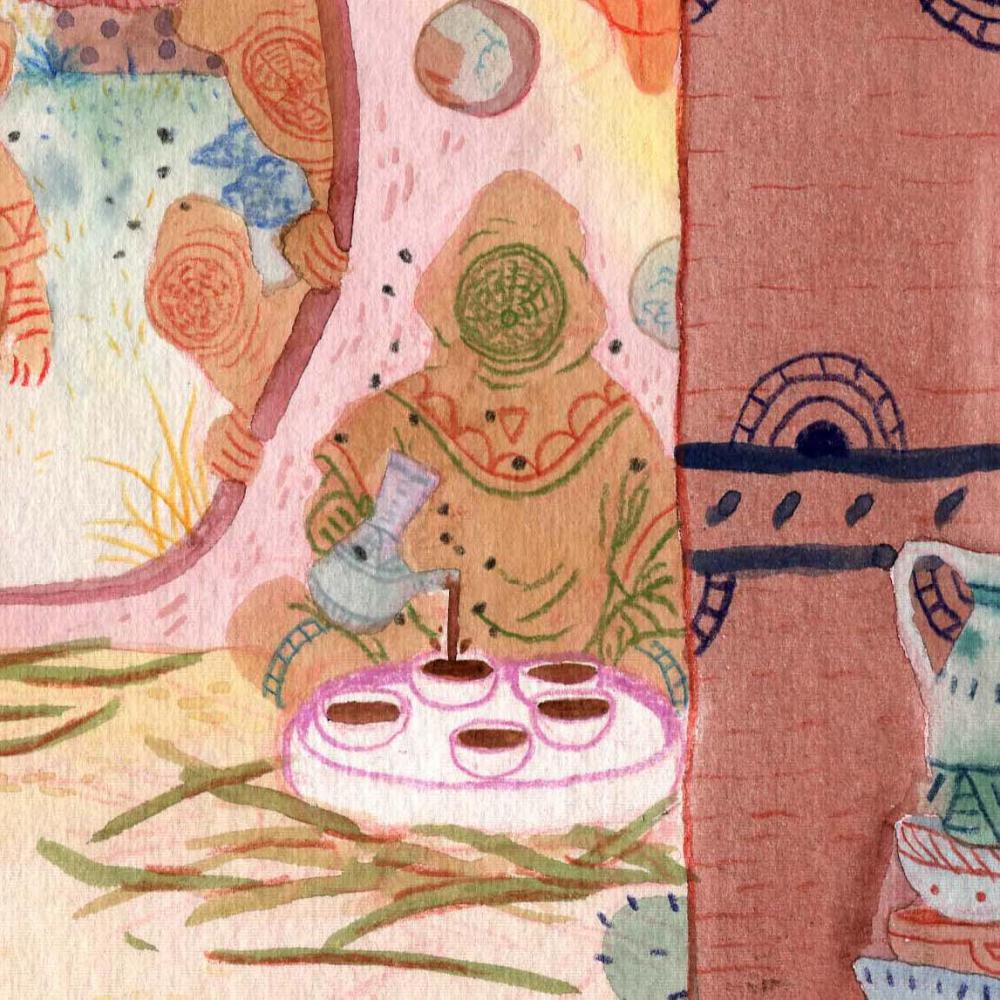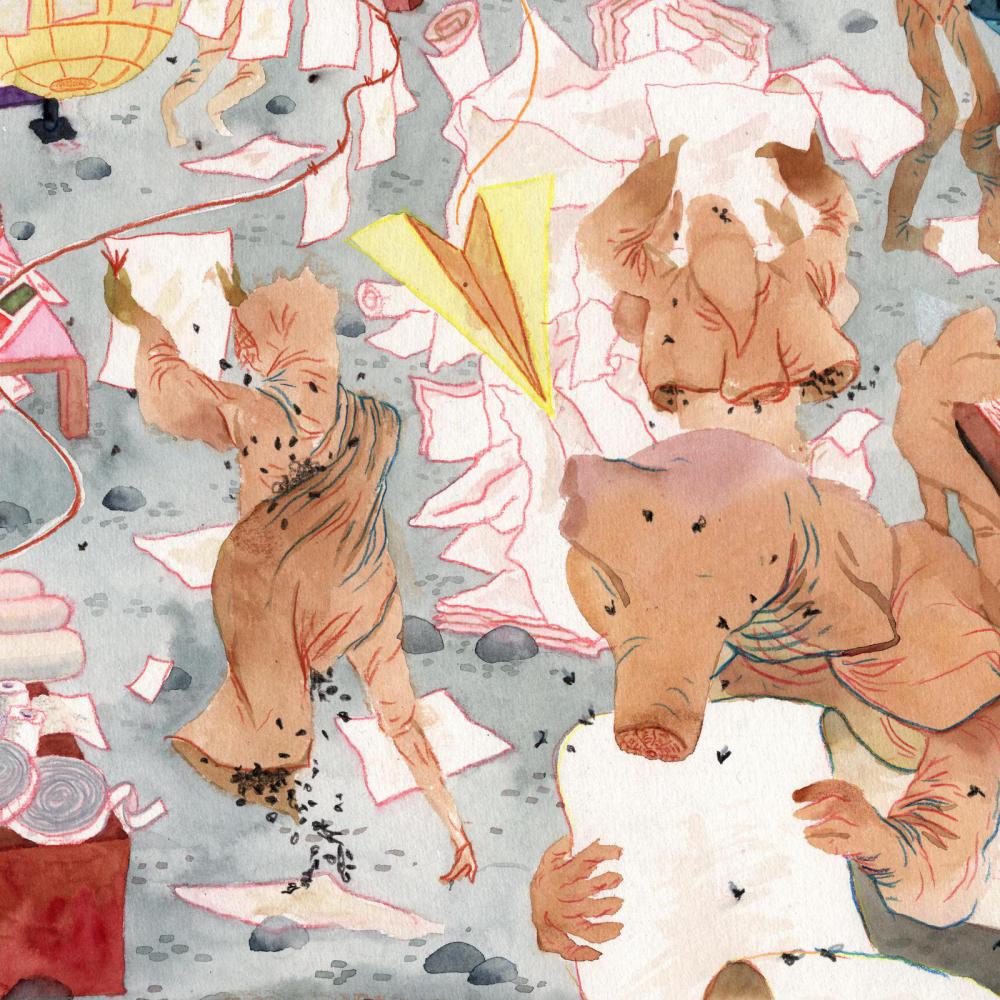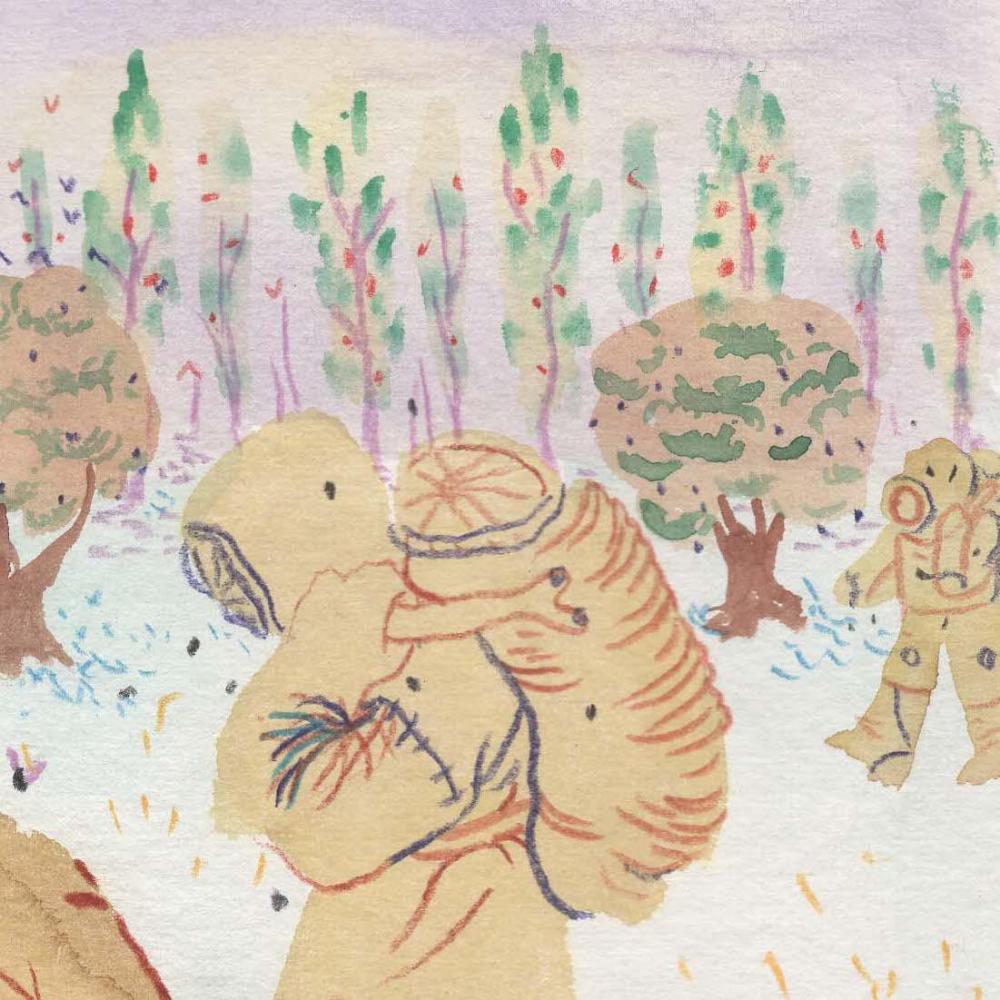The Wills and the Ways of the Beekeepers
TIMES AND DATES
Opening on Friday 8th - 17:00 - 22:00, storytelling performance at 19:00
Saturday 9th - 12:00 - 20:00
Sunday 10th: 12:00 - 20:00
De Bouwput
Ferdinand Huyckstraat 74
The Wills and the Ways of the Beekeepers is a series of whimsical and colourful drawings, inspired by Pieter Brueghel’s drawing The Beekeepers and the Birdnester (1568), that explore the nature of labour, creativity and identity. These drawings imagine a society of such beekeepers, with the key detail that the beekeepers themselves are composed of millions of bees working in concert to imitate humanoid forms in order to carry out various types of labour. Referencing a range of human crafts and creative traditions, from Ethiopian coffee ceremonies to Chinese paper lanterns or Catholic carnivals, this series is a celebration of human craft and handiwork. Beekeeper society embodies the concept of Homo Faber, or Human the Creator, while their blurring boundaries between collective and individual identity raises questions about the nature of labour and creativity.
The drawings are rich in detail, and the viewers are invited to explore the beekeepers’ world as curious anthropologists and archaeologists and to imagine the stories and meanings within.
Gus Møystad (b. 1992 NO/NL) is an illustrator, comics artist, and writer whose work explores themes of vulnerability, liminality and belonging. His art practice is expressed through various forms, including printmaking, drawing, and traditional storytelling. His stories are often inspired by history, folklore, and the hybrid, multifaceted nature of identity, both personal and collective. A conversation between these themes, as well as historical and artistic research and a deep interest in craft, embodied experience and fiction-making, results in imaginative, and often tender (visual) stories set in his own fantastical world. His artistic practice involves playing the role of the anthropologist exploring his secondary world by way of artistic research. In this way, mythical ‘secondary’ worlds become a meeting point between fiction and reality, a kind of utopia through which our real world politics and histories are investigated.


